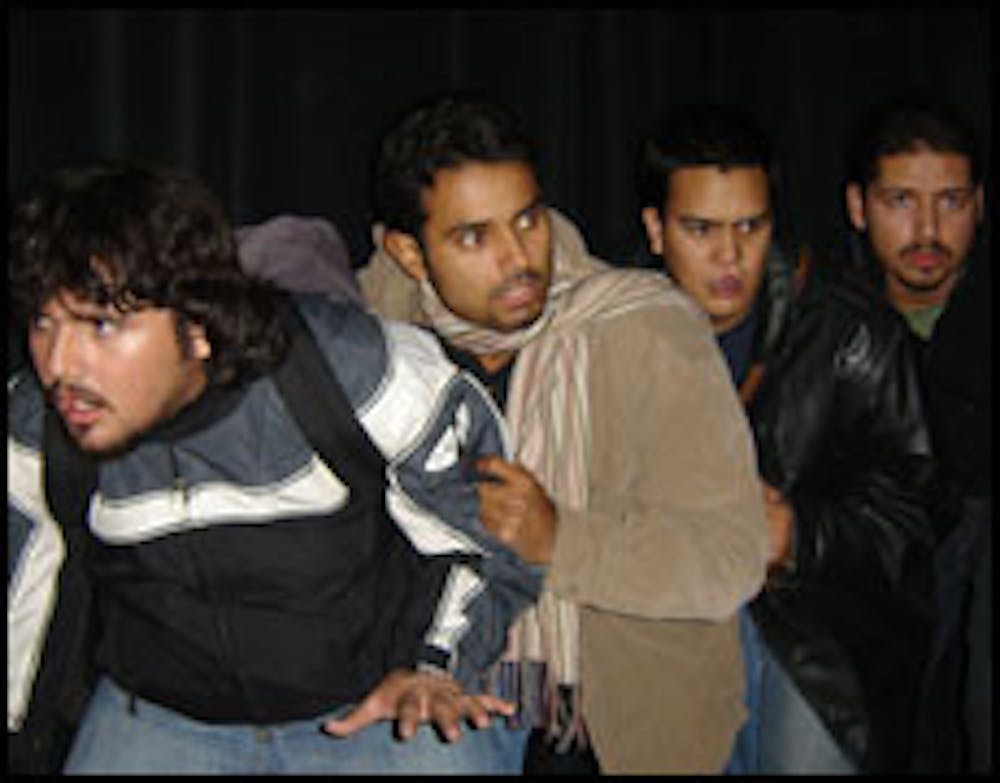A little boy sits with his mother in a theater in Santiago, Chile, absorbing every moment of old Hollywood movies on the screen with his dark brown eyes.
"The Sound of Music," "My Fair Lady," "Ben-Hur," "Romeo and Juliet" -- he watches all these movies one after the other, over and over again. But it's never enough for young Guillermo Reyes.
It was the movies and a search for a better life that led Reyes' mother to bring her only son to America in 1971.
"We were conditioned to think well of America because of all of the movies we watched," Reyes says. "But the expectations were also real. We knew that we were not coming to a country where streets are painted with gold."
Fast forward to the present day and that little boy has become an award-winning playwright, an artistic director of Teatro Bravo, an ASU associate professor of theatre and head of the ASU playwriting program.
Reyes' plays have been produced throughout the country, including the off-Broadway productions of "Men on the Verge of a His-panic Breakdown" and "Mother Lolita." He is the winner of numerous awards, including the 1996 Emerging Playwright Award for "Men on the Verge," a 1997 National Hispanic Playwrights Contest for "A Southern Christmas," and the 2002 AriZoni Award for Original Play and Original Play Production for "Miss Consuelo."
In his plays, Reyes deals with Latino-themed issues and provocative subject matter. He also writes about immigrants, and often portrays marginal people.
After receiving his master's degree in playwriting from The University of California, Los Angeles, Reyes was involved with various theaters around the country before he moved to Arizona in 1996 where ASU offered him an associate professor position.
In 2000, during a midlife crisis, Reyes created Teatro Bravo with his colleagues Trino Sandoval and Daniel Enrique Perez. Teatro Bravo became the first English-Spanish theater company in Arizona.
"I took up running, lost 30 pounds, and went to work on the creation of a theater company that actually allowed Latino people to be seen on stage, as creative artists," Reyes says.
His latest project is a Spanish version of the play "El Vagon," by playwright Silvia Gonzales S. The play will be presented at the ASU spring semester Performance in the Borderlands Project event.
The Performance in the Borderlands Project, a part of the Herberger College School of Theatre and Film at ASU, is a research, education and public programming initiative dedicated to the understanding and promotion of cultural performance along the U.S.-Mexico borderlands.
Other spring Performance in the Borderlands Project events include the screening of "Mateo," a video-dance project by a modern dance company, Delfos Danza Contemporanea, of Mazatlan, Mexico and a discussion on "Powerful Performatives: From 'American' to Hemispheric Studies," by Diana Taylor, a professor of performance studies and Spanish at New York University.
Ramon Rivera-Servera, an ASU assistant professor of theater and Southwest borderlands scholar, says "El Vagon" was chosen for the Borderlands Project because it's relevant to immigration issues in Arizona.
"We are very pleased with the opportunity to support theater in Spanish as part of our commitment to engaging with the diverse populations of our region which include an immense variety of cultural traditions and languages ranging from Mexican and Mexican-American to Native American languages and cultural practices," Rivera-Servera says.
"El Vagon" is a tale of four Mexicans and a Salvadoran immigrant who get trapped inside a boxcar as they attempt to enter the United States.
Reyes says that shock, outrage and hope are three emotions that the audience will experience at the play.
"What's unique about this play is the fact that our theater scene is made up of sometimes frivolous entertainment. 'El Vagon' is serious, documentary-style realism, and there's not enough of it in the Valley," he says. "It's a play that challenges our assumptions of entertainment."
Reach the reporter at ljiljana.ciric@asu.edu.




